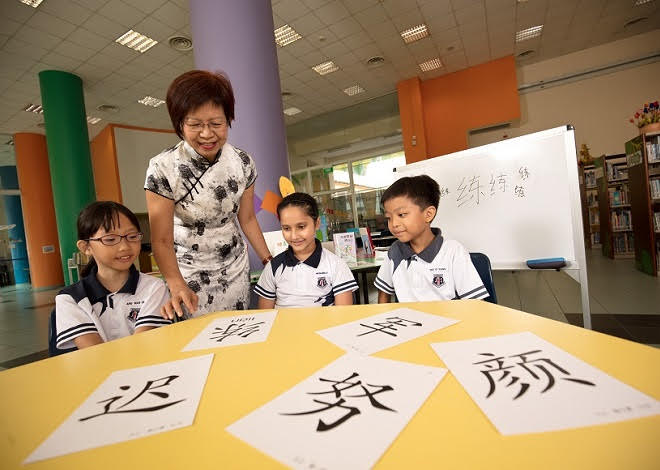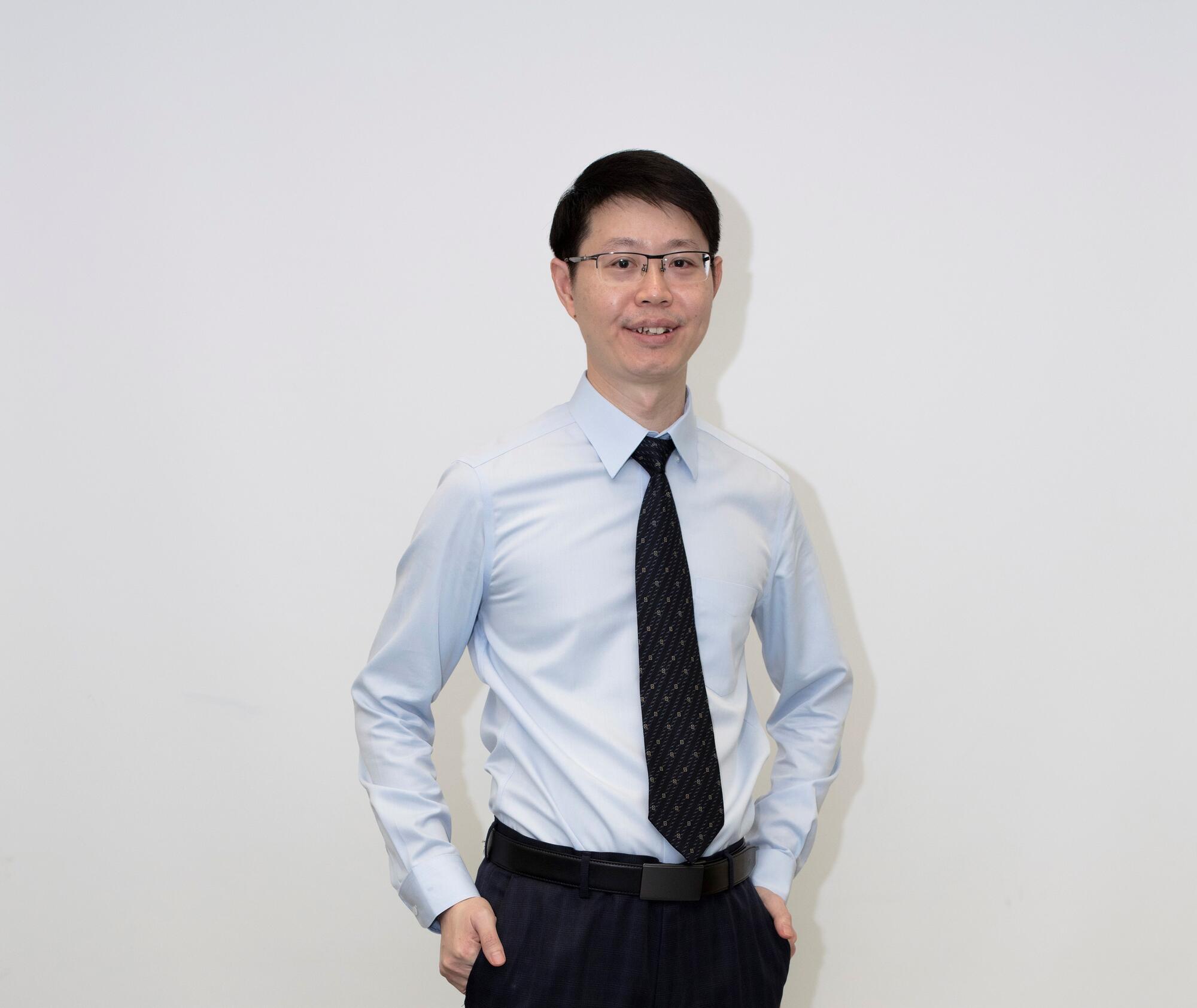Tan Chor Hoon, Jing Shan Primary School, President’s Award for Teachers 2017 Finalist
“你可以放屁,不可以放弃!” (“You can break wind, but never give up.”)
With that cheeky phrase – which rhymes in Chinese – Chor Hoon’s students burst into laughter.
Such wordplay is one of her tricks to get her young charges enthused about the language. Others include singing songs like 早安老师 (“Good Morning, Teacher”) to make their lessons more light-hearted.
Her rationale: “You must allow students to develop a bond with the language. Don’t let them get bored.”
So, instead of having them passively listen to her read Stone Soup (石头汤), about a man who cons an entire village into using their food to help him make soup, she gets them to adapt it into a play.
Her Primary 5 class had to write the script, make the costumes and props from materials in class, and create an invitation card for the Principal to watch the production.
“This takes a lot of time, but it helps the students to cultivate a love for learning Chinese. Not only did they learn how to compose sentences, but, most importantly, it also builds up their team spirit and creativity,” says Chor Hoon.
It also appeals to an innate streak she sees in children: “All children like to perform, so let them perform.”
Low Ability? No Problem
Chor Hoon developed her palette of strategies to engage lower ability learners. The first class she had when she joined Jing Shan “had no interest in Chinese at all”, so she put aside the textbooks and told them stories to teach them the meaning behind the idioms.
This year, she taught students who did not even have the ability to read a sentence, let alone an essay.
She gathered them at the front of the class, and gave each one a different sentence from a passage they were studying. All they had to do was to master that one sentence.
They then took turns to act out their respective lines, explaining them to their classmates. When everyone understood the individual sentences, they arranged them in order to piece the whole passage together. These simple, everyday strategies are what that Chor Hoon adopts to help students gain confidence in the language.
Her readiness to adapt to different profiles of students was forged long before she became a teacher. In the late 1970s, while working in the Ministry of Defence, she taught Hokkien-speaking youths basic Chinese prior to their enlistment in the army.
As Mandarin became more widely spoken in Singapore, her focus shifted to lieutenants, who had to pass a conversational Mandarin course to be promoted.
When lieutenants no longer required coaching, her love for teaching led her to join the education service and serve as an educator to children.
Putting People First
While Chor Hoon loves the experience of teaching, calling it “an art, and a form of enjoyment,” the well-being of her students also weighs constantly on her mind. She actively looks out for any student who may be facing challenges.
One Primary 1 boy had difficulty recognising Chinese characters because of dyslexia, but had a gift for reciting stories. Chor Hoon arranged for him to tell stories in Chinese to the rest of the class. His classmates were struck by his skill, and spurred on to learn more about the language.
Another of her students had not eaten during snack break for a few days. She noticed this and took the initiative to get in touch with his family.
Chor Hoon also gives her students channels to share their joys and sorrows directly with her. Those with a strong grasp of the language are encouraged to write a weekly journal, while others are simply asked to draw. She always responds to their personal problems through encouragement and counsel.
Her concern extends to her fellow teachers. As chairman of the school’s Staff Welfare Committee, she organises regular bonding activities for her colleagues, and cooks dessert for them regularly. She opens her lessons to interested colleagues for observation, and mentors younger teachers.
Chor Hoon’s next project is to adapt the popular Qing Dynasty classic Standards for Being a Good Pupil and Child (弟子规) into short stories, which she intends to use in her Character and Citizenship Education (CCE) classes. To her, this is a great opportunity to marry the teaching of Chinese Language with moral values. She intends to engage her students by – what else – drawing illustrations based on these stories.
“My job is not only about improving students’ academic results. More importantly, it’s about their growth and development as individuals,” she says.
“She is like a mother taking care of her children. If I do not attend her class, she will ask me if I’m alright the next day,” said Yeo Yu Xiang, a Primary Three student.






